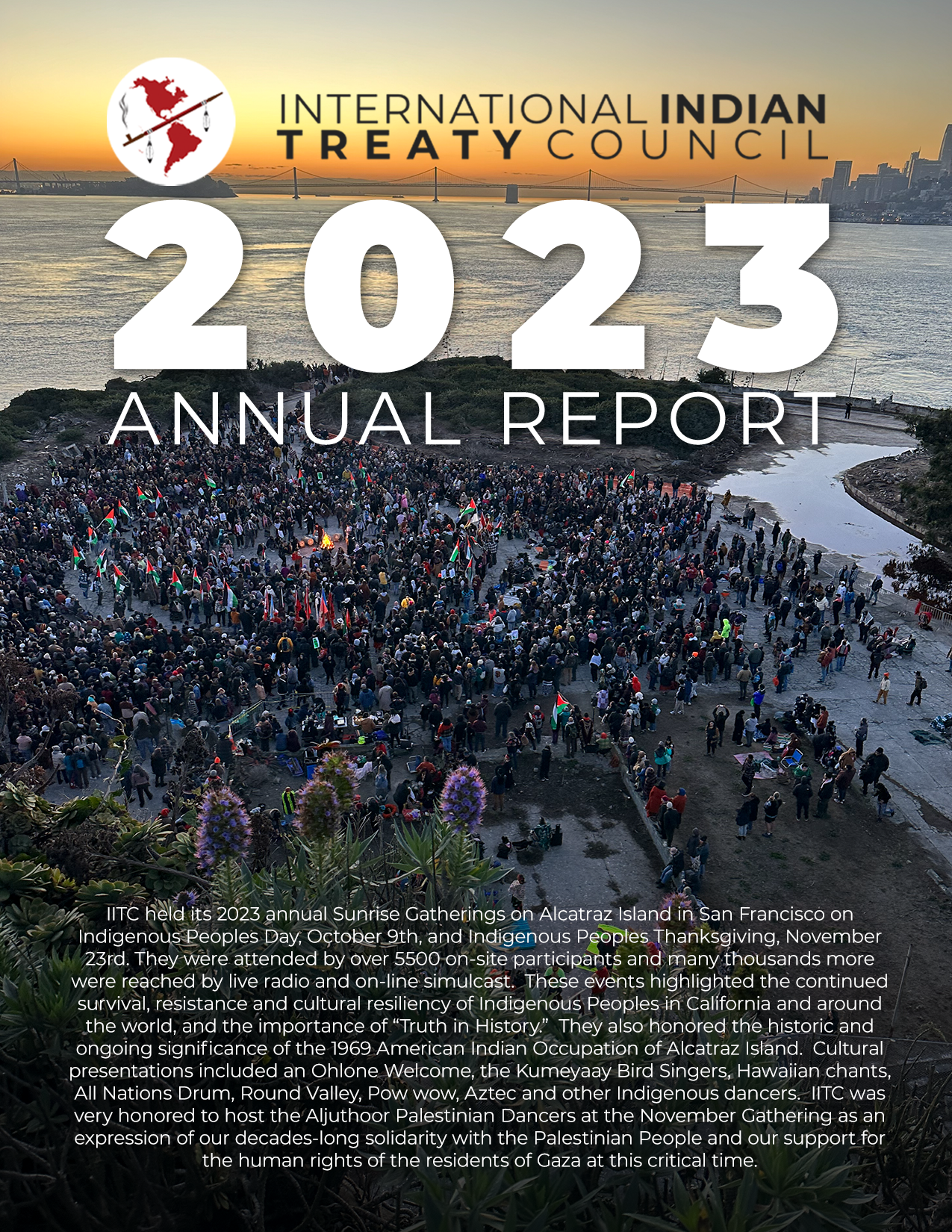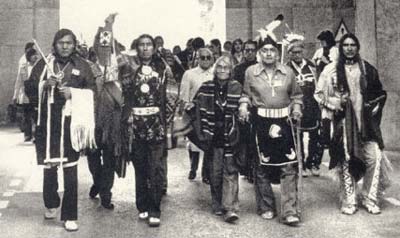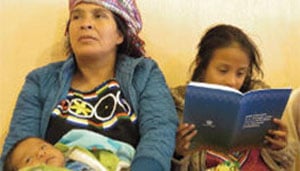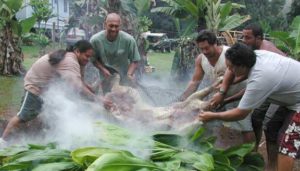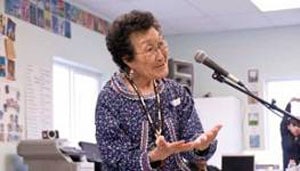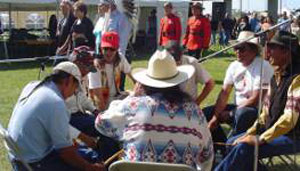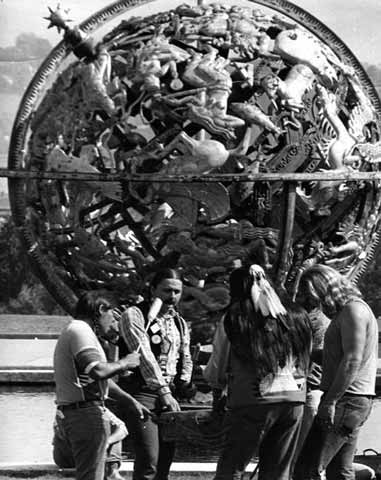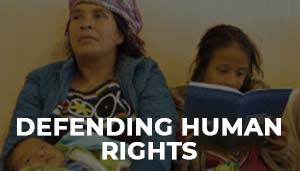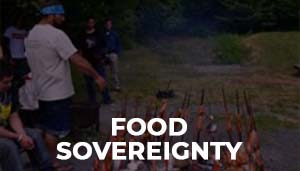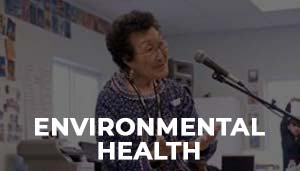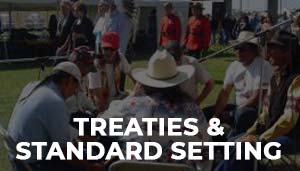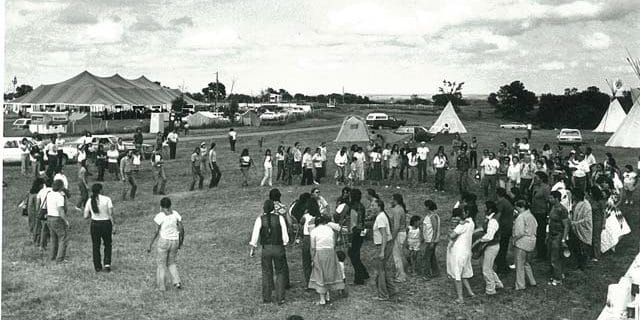Indigenous Peoples’ Participation at the United Nations
Panel Discussion on the Participation of Indigenous Peoples’
at the United Nations and on the Challenges Faced
16 July 2019, 08.30-09.45
United Nations, E-building, room XXV, Geneva; Switzerland
Nota conceptual
Purpose of the side-event
The purpose of the side-event is to discuss Indigenous participation to the UN, with the focus on Human Rights Council. The event will have a specific focus on how the Indigenous Peoples participation to the UN has been and what has the Indigenous Peoples participation ment to the UN. Panellists representing indigenous peoples from different regions will give an overview on the current situation from their perspective and discuss the major challenges which still exist in the participation of their representatives or institutions representing them.
Organization
The side-event will be hosted by the Sámi Parliamentary Council. (including Sámi Parliament in Norway, the Sámi Parliament in Sweden and the Sámi Parliament in Finland) The event is co-hosted by; The International Indian Treaty Council (IITC) and Coordinadora de las Organizaciones Indígenas de la Cuenca Amazónica (COICA), Asia Indigenous Peoples Pact (AIPP)
Program of the Event
The side-event will be chaired by Mr. Tuomas Aslak Juuso, Vice-president of the Sámi Parliament in Finland. Panelist are invited to be at the site 0825 for a joint picture in order to be able to start at 0830 am sharp.
0830 Opening of the event
Per-Olof Nutti, President of the Sámi Parliament in Sweden
0835 How has the Indigenous Participation to the United Nations been?
Andrea Carmen, Executive Director of International Indian Treaty Council
0845 Meaning of the participation of IP’s to the UN with the view from inside
Megan Davis, Expert member to the EMRIP from Pacific region.
0855 A will to enhance Indigenous participation to the UN?
Ghazali Ohorella, Alifuru Council
0905 Perspective on IP’s participation to the UN with the eyes from the Arctic region
Aili Keskitalo, President of the Sámi Parliament in Norway
0915 Perspective on IP’s participation to the UN with the eyes from the Asia region
Binota Moy Dhamai, Asia Indigenous Peoples Pact
0925 Discussion and questions to the panelist
0940 Ending of the event
Tuomas Aslak Juuso, Vice-president of the Sámi Parliament in Finland
Background
In 2014 in the high-level plenary meeting of the General Assembly, known as the World Conference on Indigenous Peoples, the Member states adopted the resolution in which they committed to “consider ways to enable the participation of indigenous peoples’ representatives and institutions in meetings of relevant United Nations bodies on issues affecting them” (A/RES/69/2, paragraph 33). This was the start for the process which led to the adoption of the General Assembly resolution entitled Enhancing the Participation of Indigenous Peoples’ Representatives and Institutions in Meetings of Relevant United Nations Bodies on Issues Affecting Them (A/RES/71/321) in 2017, and which is still ongoing.
After the resolution was adopted in 2014, the process towards enhanced participation of Indigenous Peoples at the United Nations has included several notable developments but also some challenges. In May 2015 the Secretary-General released a report regarding the developments on the implementation of the resolution (A/70/84–E/2015/76). In the report an overview of the situation at the time was provided, and in addition to that, specific proposals to enable the participation of Indigenous Peoples was given by the Secretary-General (paragraph 47-50).
In 2015 the General Assembly requested in its resolution on the rights of Indigenous Peoples the President of the General Assembly (PGA) to conduct consultations regarding “the possible measures necessary, including procedural and institutional steps and selection criteria, to enable the participation of indigenous peoples’ representatives and institutions in meetings of relevant United Nations bodies on issues affecting them” (A/RES/70/232, paragraph 19). It also requested “the President to prepare a compilation of the views presented during the consultations, including good practices within the United Nations regarding indigenous peoples’ participation, which will form the basis for a draft text to be finalized and adopted by the Assembly during its seventy-first session.”. The consultation process took place from March 2016 to July 2016 and consisted of electronic consultation and consultative meetings with the assistance of four advisers appointed by the PGA. After the consultations, the PGA’s compilation of collected views were published in July (A/70/990).
The Consultation process continued in the autumn 2016, after the PGA of the 71st session of the General Assembly reappointed the four advisors. In November 2016 a dialogue meeting was organised in Bangkok in order to provide a venue for the representatives of indigenous peoples to discuss on their positions and strategies with respect to the specific issues raised in the PGA’s compilation. Consultations for the development of the text for the resolution on Enhancing the Participation of Indigenous Peoples’ Representatives and Institutions in Meetings of Relevant United Nations Bodies on Issues Affecting Them took place from December 2016 to May 2017. The resolution was adopted on 8 September 2017 by the United Nations General Assembly (A/RES/71/321).
In its resolution the General Assembly encouraged the Permanent Forum on Indigenous Issues, the Expert Mechanism on the Rights of Indigenous Peoples and the Special Rapporteur of the Human Rights Council on the rights of indigenous peoples “to continue to address the enhanced participation of indigenous peoples’ representatives and institutions within the United Nations on issues affecting them” (A/RES/71/321, paragraph 3). In the resolution the PGA was also requested to organize informal interactive hearings with indigenous peoples (A/RES/71/321, paragraph 8). Such hearings have been conducted on the margins of the sessions of the Permanent Forum on Indigenous Issues on the 17º of April 2018 and the 25º of April 2019. In the summaries of the hearings both achievements and still existing challenges in terms of indigenous peoples’ participation at the work of the United Nations, are listed. In the summary of the second informal interactive hearing the Local Communities and Indigenous Peoples Platform and the Facilitative working group of the UN Framework Convention on Climate Change was mentioned as one of the recent achievements.
At its 11º session in July 2018 the Expert Mechanism on the Rights of Indigenous Peoples discussed the participation of indigenous peoples at the United Nations and the role of the Human Rights Council in facilitating the participation of indigenous peoples’ representatives, and their representative institutions in its work, in accordance with the United Nations Declaration on the Rights of Indigenous Peoples.
In September 2018, The Human Rights Council, decided in its resolution “to hold a half-day intersessional interactive dialogue, while inviting the President of the General Assembly to participate, on ways to enhance the participation of indigenous peoples’ representatives and institutions in meetings of the Human Rights Council on issues affecting them” (A/HRC/39/L.18/Rev.1, paragraph 11.)
To download Word document, click here: https://www.iitc.org/wp-content/uploads/Concept-note_draft_EMRIP-2019-IP-participation-1.docx
Compartir esta publicación
Panel: Indigenous Peoples’ Participation at the United Nations, Geneva; Switzerland, 16 July 2019
Indigenous Peoples’ Participation at the United Nations
Panel Discussion on the Participation of Indigenous Peoples’
at the United Nations and on the Challenges Faced
16 July 2019, 08.30-09.45
United Nations, E-building, room XXV, Geneva; Switzerland
Nota conceptual
Purpose of the side-event
The purpose of the side-event is to discuss Indigenous participation to the UN, with the focus on Human Rights Council. The event will have a specific focus on how the Indigenous Peoples participation to the UN has been and what has the Indigenous Peoples participation ment to the UN. Panellists representing indigenous peoples from different regions will give an overview on the current situation from their perspective and discuss the major challenges which still exist in the participation of their representatives or institutions representing them.
Organization
The side-event will be hosted by the Sámi Parliamentary Council. (including Sámi Parliament in Norway, the Sámi Parliament in Sweden and the Sámi Parliament in Finland) The event is co-hosted by; The International Indian Treaty Council (IITC) and Coordinadora de las Organizaciones Indígenas de la Cuenca Amazónica (COICA), Asia Indigenous Peoples Pact (AIPP)
Program of the Event
The side-event will be chaired by Mr. Tuomas Aslak Juuso, Vice-president of the Sámi Parliament in Finland. Panelist are invited to be at the site 0825 for a joint picture in order to be able to start at 0830 am sharp.
0830 Opening of the event
Per-Olof Nutti, President of the Sámi Parliament in Sweden
0835 How has the Indigenous Participation to the United Nations been?
Andrea Carmen, Executive Director of International Indian Treaty Council
0845 Meaning of the participation of IP’s to the UN with the view from inside
Megan Davis, Expert member to the EMRIP from Pacific region.
0855 A will to enhance Indigenous participation to the UN?
Ghazali Ohorella, Alifuru Council
0905 Perspective on IP’s participation to the UN with the eyes from the Arctic region
Aili Keskitalo, President of the Sámi Parliament in Norway
0915 Perspective on IP’s participation to the UN with the eyes from the Asia region
Binota Moy Dhamai, Asia Indigenous Peoples Pact
0925 Discussion and questions to the panelist
0940 Ending of the event
Tuomas Aslak Juuso, Vice-president of the Sámi Parliament in Finland
Background
In 2014 in the high-level plenary meeting of the General Assembly, known as the World Conference on Indigenous Peoples, the Member states adopted the resolution in which they committed to “consider ways to enable the participation of indigenous peoples’ representatives and institutions in meetings of relevant United Nations bodies on issues affecting them” (A/RES/69/2, paragraph 33). This was the start for the process which led to the adoption of the General Assembly resolution entitled Enhancing the Participation of Indigenous Peoples’ Representatives and Institutions in Meetings of Relevant United Nations Bodies on Issues Affecting Them (A/RES/71/321) in 2017, and which is still ongoing.
After the resolution was adopted in 2014, the process towards enhanced participation of Indigenous Peoples at the United Nations has included several notable developments but also some challenges. In May 2015 the Secretary-General released a report regarding the developments on the implementation of the resolution (A/70/84–E/2015/76). In the report an overview of the situation at the time was provided, and in addition to that, specific proposals to enable the participation of Indigenous Peoples was given by the Secretary-General (paragraph 47-50).
In 2015 the General Assembly requested in its resolution on the rights of Indigenous Peoples the President of the General Assembly (PGA) to conduct consultations regarding “the possible measures necessary, including procedural and institutional steps and selection criteria, to enable the participation of indigenous peoples’ representatives and institutions in meetings of relevant United Nations bodies on issues affecting them” (A/RES/70/232, paragraph 19). It also requested “the President to prepare a compilation of the views presented during the consultations, including good practices within the United Nations regarding indigenous peoples’ participation, which will form the basis for a draft text to be finalized and adopted by the Assembly during its seventy-first session.”. The consultation process took place from March 2016 to July 2016 and consisted of electronic consultation and consultative meetings with the assistance of four advisers appointed by the PGA. After the consultations, the PGA’s compilation of collected views were published in July (A/70/990).
The Consultation process continued in the autumn 2016, after the PGA of the 71st session of the General Assembly reappointed the four advisors. In November 2016 a dialogue meeting was organised in Bangkok in order to provide a venue for the representatives of indigenous peoples to discuss on their positions and strategies with respect to the specific issues raised in the PGA’s compilation. Consultations for the development of the text for the resolution on Enhancing the Participation of Indigenous Peoples’ Representatives and Institutions in Meetings of Relevant United Nations Bodies on Issues Affecting Them took place from December 2016 to May 2017. The resolution was adopted on 8 September 2017 by the United Nations General Assembly (A/RES/71/321).
In its resolution the General Assembly encouraged the Permanent Forum on Indigenous Issues, the Expert Mechanism on the Rights of Indigenous Peoples and the Special Rapporteur of the Human Rights Council on the rights of indigenous peoples “to continue to address the enhanced participation of indigenous peoples’ representatives and institutions within the United Nations on issues affecting them” (A/RES/71/321, paragraph 3). In the resolution the PGA was also requested to organize informal interactive hearings with indigenous peoples (A/RES/71/321, paragraph 8). Such hearings have been conducted on the margins of the sessions of the Permanent Forum on Indigenous Issues on the 17º of April 2018 and the 25º of April 2019. In the summaries of the hearings both achievements and still existing challenges in terms of indigenous peoples’ participation at the work of the United Nations, are listed. In the summary of the second informal interactive hearing the Local Communities and Indigenous Peoples Platform and the Facilitative working group of the UN Framework Convention on Climate Change was mentioned as one of the recent achievements.
At its 11º session in July 2018 the Expert Mechanism on the Rights of Indigenous Peoples discussed the participation of indigenous peoples at the United Nations and the role of the Human Rights Council in facilitating the participation of indigenous peoples’ representatives, and their representative institutions in its work, in accordance with the United Nations Declaration on the Rights of Indigenous Peoples.
In September 2018, The Human Rights Council, decided in its resolution “to hold a half-day intersessional interactive dialogue, while inviting the President of the General Assembly to participate, on ways to enhance the participation of indigenous peoples’ representatives and institutions in meetings of the Human Rights Council on issues affecting them” (A/HRC/39/L.18/Rev.1, paragraph 11.)
To download Word document, click here: https://www.iitc.org/wp-content/uploads/Concept-note_draft_EMRIP-2019-IP-participation-1.docx
